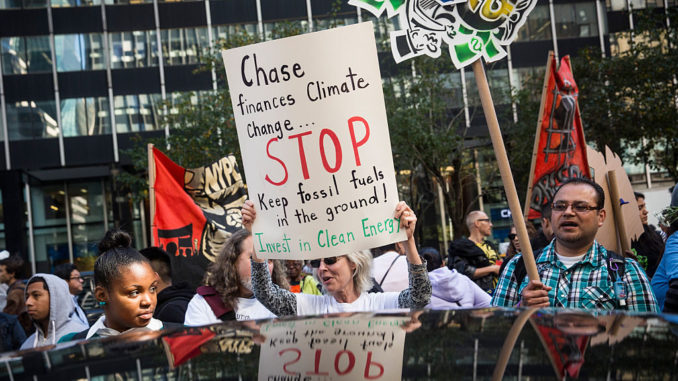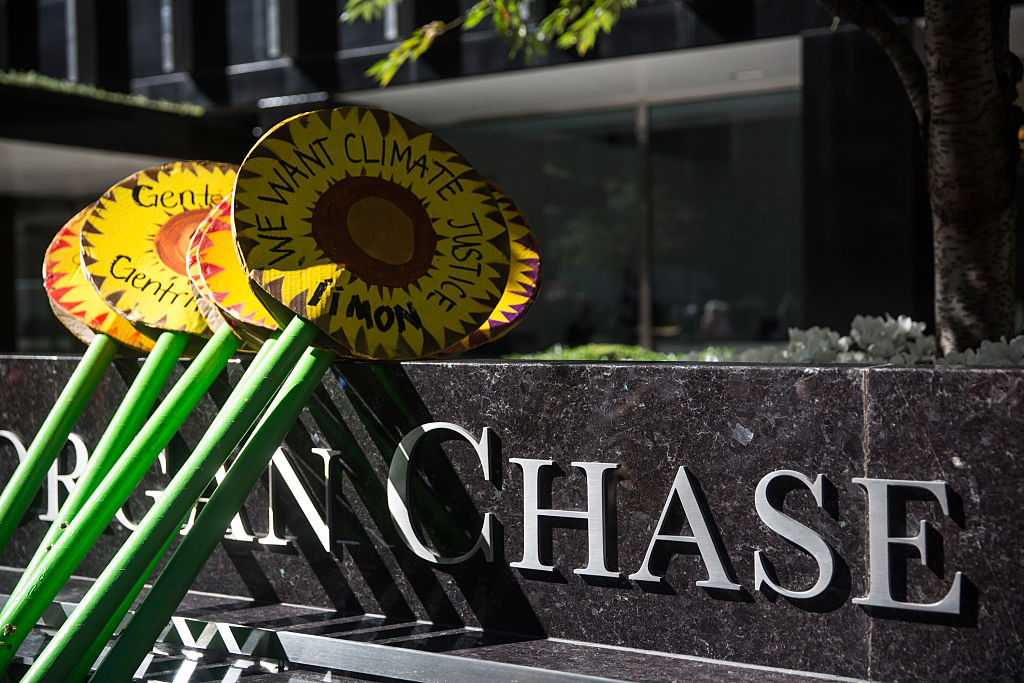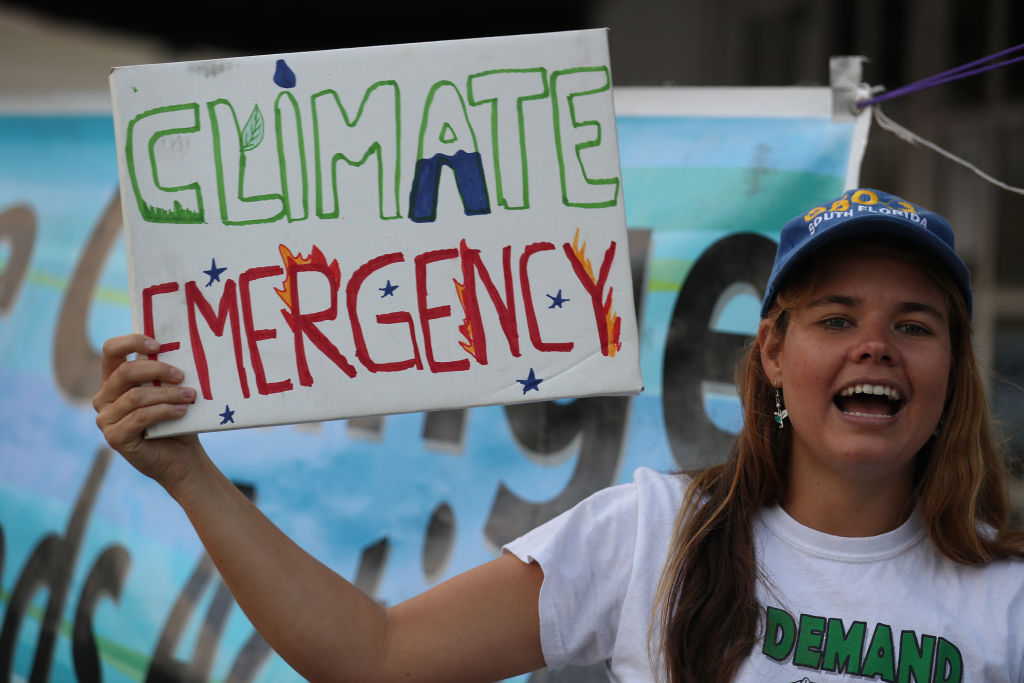
Climate change is becoming a bottom-line burden for big business, with profound impacts on fiscal and staffing success. And as C-suites grapple with containing risks linked to environmental issues, green-energy work experience is the new hot commodity.
Studies conducted by accounting giant KPMG and international law firm Eversheds Sutherland found that while corporate leadership is moving toward embracing climate policies, rank-and-file employees are the route to helping CEOs’ attitudes.
A November worldwide survey of executives revealed many in corporate management lack the skill set to address climate-related risks, which are estimated to cost $1 trillion. KPMG has outlined three main classes of these risks that worry shareholders.
“Physical risks” of climate change are just the beginning — droughts, wildfires, increased storm intensity and frequency, flooding and erosion, decreased agricultural output and other consequences of increased warming in some areas. “Transitional risks” can include new regulations, technological changes and social expectations. Corporations can also expect to face “liability risks” if they fail to properly address climate change, KPMG concluded.

The survey of more than 500 corporate executives from some of the world’s top companies revealed that 74% of corporate leaders believe they and their companies needed better skills to address climate change.
“The survey demonstrates a significant gap: Three quarters of executives think climate risk poses a threat to their job, while only 26% admitted they have the skill set to deal with the risk,” said Michelle T. Davies, international head of clean energy & sustainability at Eversheds Sutherland.
At the recent Reuters Events: Future of Renewables conference, Davies said climate policy is having an impact on large workforces. Attracting talent is where it starts. “Some 25% of the world’s largest companies said they were losing talent because of climate policy,” she said. “They weren’t able to attract the junior talent.”
In another KPMG study, more than half of the world’s 250 largest companies see climate change as a financial risk to their business. But not all the pressure to address it is coming from the top.
The survey showed 40% of executives believe employees leave their jobs in part because they are unhappy about their firm’s focus on climate-related policies and projects. Another one-third say employees have been vocal about their dissatisfaction with their company’s impact on climate change.
While 45% responded that climate change doesn’t appear to be an issue for employees, another 28% the topic comes up in job interviews with potential employees. And 14% say employees are putting pressure on management to act.
“Greater attention to climate issues among rake-and-file employees will also be present among potential hires,” KPMG found. “Therefore, companies’ efforts around climate change should become a significant factor and even a differentiator in their recruiting efforts, particularly for young people.”
Some countries are more likely than others to report financial risk from climate change.
The French, Japanese and American governments are more candid, while German and Chinese firms were less likely to add those risks to their corporate disclosures, the KPMG report found. But while many German companies don’t describe climate change as a financial risk in their corporate reports, German CEOs are the most likely to mention climate risks in their annual reports.
Not surprisingly, the topic comes up most frequently in the oil and gas sector, and in utilities that see financial risks associated with burning fossil fuels.
Last month the Arizona-based utility Salt River Project demolished its 2.2-gigawatt Navajo Generating Station after it determined it would be “uneconomical” to continue operating the plant.
And one of the U.S.’s newest coal-fired power plants is struggling, according to a report from the Institute for Energy Economics and Financial Analysis. The Virginia City Hybrid Energy Center, built just eight years ago, is “at risk of closure as market and policy forces continue to work against its viability.”
Climate-related risks aren’t isolated to the U.S.
In Australia, a Japanese firm is divesting itself from a $1 billion investment in the 466-megawatt Bluewaters Power Station after “no longer wanting to be associated with investments in loss-making thermal coal-fired power plants,” IEEFA reported.

In the KPMG and Eversheds Sutherland survey, 78% of executives said climate risk will be a key factor determining whether they keep their jobs during the next five years.
The shifting focus to renewable energy has the potential to affect the workforce across a variety of industries, and not just the hourly workforce, warned Dane Parker, chief sustainability officer at General Motors. His company speculated on the fate of internal combustion engine engineers as the auto industry increasingly adopts electric vehicle technology.
Julien Pouget, senior vice president of renewables at French oil producer Total, said the urgency of an energy transition is present at all levels of his international company.
“It’s not just the young employees,” Pouget said during the Reuters conference. “The existing leadership teams are aware of the challenge and that a transition is necessary.”
(Edited by Fern Siegel and Bryan Wilkes)
The post Climate Change Now Key Issue For Boardrooms And Balance Sheets appeared first on Zenger News.
